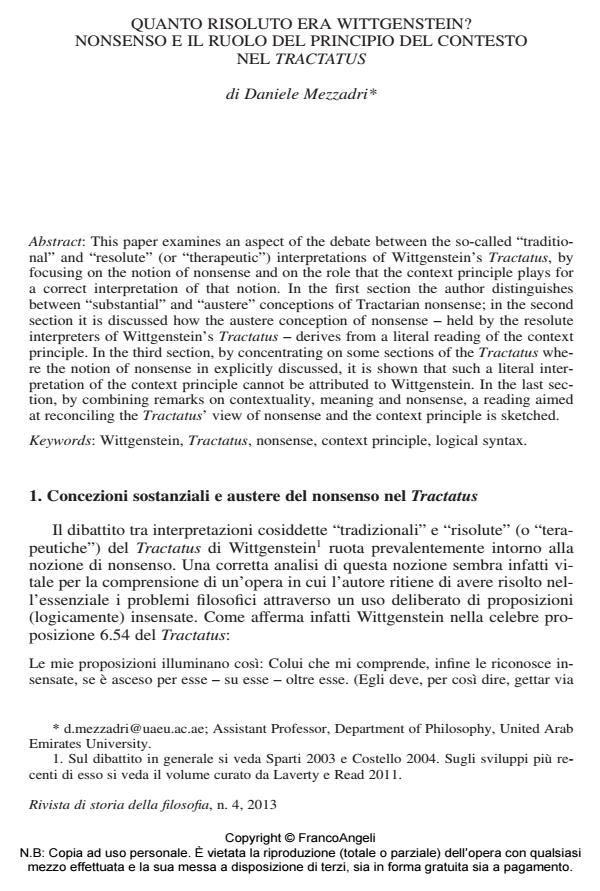Quanto risoluto era Wittgenstein? Nonsenso e il ruolo del principio del contesto nel Tractatus
Journal title RIVISTA DI STORIA DELLA FILOSOFIA
Author/s Daniele Mezzadri
Publishing Year 2013 Issue 2013/4
Language Italian Pages 17 P. 721-737 File size 495 KB
DOI 10.3280/SF2013-004004
DOI is like a bar code for intellectual property: to have more infomation
click here
Below, you can see the article first page
If you want to buy this article in PDF format, you can do it, following the instructions to buy download credits

FrancoAngeli is member of Publishers International Linking Association, Inc (PILA), a not-for-profit association which run the CrossRef service enabling links to and from online scholarly content.
This paper examines an aspect of the debate between the so-called "traditional" and "resolute" (or "therapeutic") interpretations of Wittgenstein’s Tractatus, by focusing on the notion of nonsense and on the role that the context principle plays for a correct interpretation of that notion. In the first section the author distinguishes between "substantial" and "austere" conceptions of Tractarian nonsense; in the second section it is discussed how the austere conception of nonsense - held by the resolute interpreters of Wittgenstein’s Tractatus - derives from a literal reading of the context principle. In the third section, by concentrating on some sections of the Tractatus where the notion of nonsense in explicitly discussed, it is shown that such a literal interpretation of the context principle cannot be attributed to Wittgenstein. In the last section, by combining remarks on contextuality, meaning and nonsense, a reading aimed at reconciling the Tractatus’ view of nonsense and the context principle is sketched.
Keywords: Wittgenstein, Tractatus, nonsense, context principle, logical syntax.
Daniele Mezzadri, Quanto risoluto era Wittgenstein? Nonsenso e il ruolo del principio del contesto nel Tractatus in "RIVISTA DI STORIA DELLA FILOSOFIA" 4/2013, pp 721-737, DOI: 10.3280/SF2013-004004